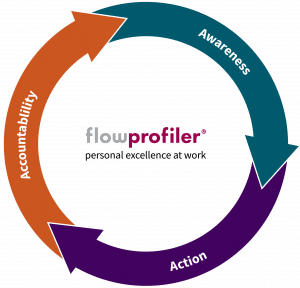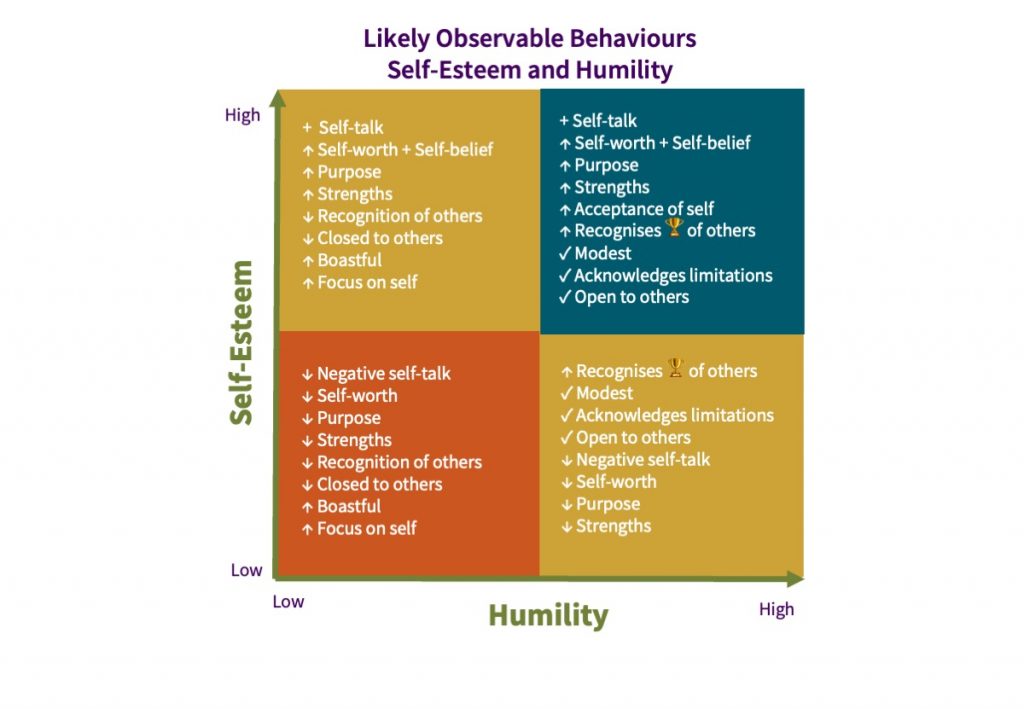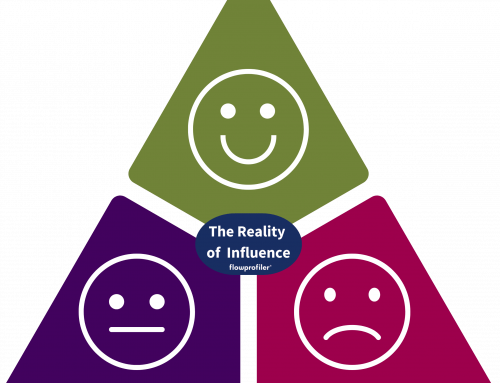A question I get asked from time to time is “does low self-esteem demonstrate humility?”.
In our flowprofiler® family of assessments we have a validated measure of a person’s Self-Esteem. This measurement takes place across 2 states: day-to-day and under pressure. Comparing the two results provides great insight in to how an individual is adapting their behaviour to meet the demands of the role or situation they are in. Suffice to say, the conversations are fascinating.
Awareness → Action → Accountability = Personal Excellence at Work
Our purpose at flowprofiler® is to support people as they discover and replicate their personal excellence in the workplace.
excellence in the workplace.
We do this through our Awareness → Action → Accountability framework.
The flowprofiler® reports and feedback sessions work to create awareness. The development tips and training work to create action and self-management strategies. And the learner brings accountability to the equation; the willingness to turn up for oneself and effect the types of change that will result in better outcomes.
Defining self-esteem and humility
Whenever I am asked as question such as “does low self-esteem demonstrate humility?” I come back to the evidence. The evidence, in this case points to the definitions of each. Let’s explore these now:
Humility:
‘Freedom from pride or arrogance: the quality or state of being humble’ – Merriam Webster
‘Someone who has humility is not proud and does not believe they are better than other people.’ – Collins dictionary
‘The quality of not thinking that you are better than other people; the quality of being humble.’ – The Oxford Dictionary
Based on these definitions we can summarise the key qualities of humility:
- Free from pride or arrogance (Merriam Webster + Collins)
- A belief that you are not better than others (Collins + Oxford)
Let us now explore Self-Esteem.
Self – Esteem
Our definition for Self-Esteem comes from the flowprofiler® technical manual. This definition has come about as a result of the collaboration and research conducted by our lead psychologists Amanda Potter, Chief Psychologist Zircon, and Psychologist Helen Hargrave.
‘With a high regard for their own self-worth, these people understand their place in the world. They understand themselves, their core strengths and have a clear sense of purpose.
This sense of clarity has been shaped by their past experiences. They think positively about themselves, attending to positive feedback and messages from others.
They engage in positive self-talk on a regular basis.
In social interactions, they feel comfortable speaking highly of themselves, focusing on the aspects of themselves that they perceive to be their best qualities.’ – flowprofiler® technical manual
We can now describe the key qualities of having a healthy Self-Esteem:
- High regard for self-worth
- Understanding of place in the world, self, their strengths and purpose
- Clarity shaped by past experiences
- Positive thoughts about self and attend to positive feedback
- Engagement with positive self-talk and speak highly of themselves
- Focus on best qualities
Bringing humility and Self-Esteem together
Based on these definitions we can conclude that humility brings a recognition that we are not better than others and a freedom from arrogance. A low Self-Esteem is not valuing yourself, having little or no belief in you and seeing yourself as unworthy. Whereas a healthy Self-Esteem recognises one’s strengths and speaks positively of oneself.
Humility speaks to recognition. Self-Esteem is what you believe to be true.
What about low Self-Esteem and humility then?
Is it possible to have a low Self-Esteem and underuse humility? We believe so. A strong focus on self, an unwillingness to consider the views of others and a boastful approach to one’s achievements would be the hallmark of this behaviour. Combine this with a near absence of self-worth, belief and, purpose and you will have a strong set of observable behaviours in front of you.
So, can you have a healthy Self-Esteem and still be humble?
We believe yes, 100% you can! And we would suggest that there can be a strong relationship between being humble and having a healthy Self-Esteem. Self-Esteem is the recognising and knowing your worth, humility is not lauding it over others.
I was speaking with a psychologist friend about this yesterday and we agree humility is more likely to demonstrate high Self-Esteem as the person displays self-belief, self-worth and clear purpose whilst equally recognising that they aren’t better than others. There is no need for them to boast about their achievements. They have the answer within.
Interested in learning more about flowprofiler®?
Reach out to us at hello@flowprofiler.com.



